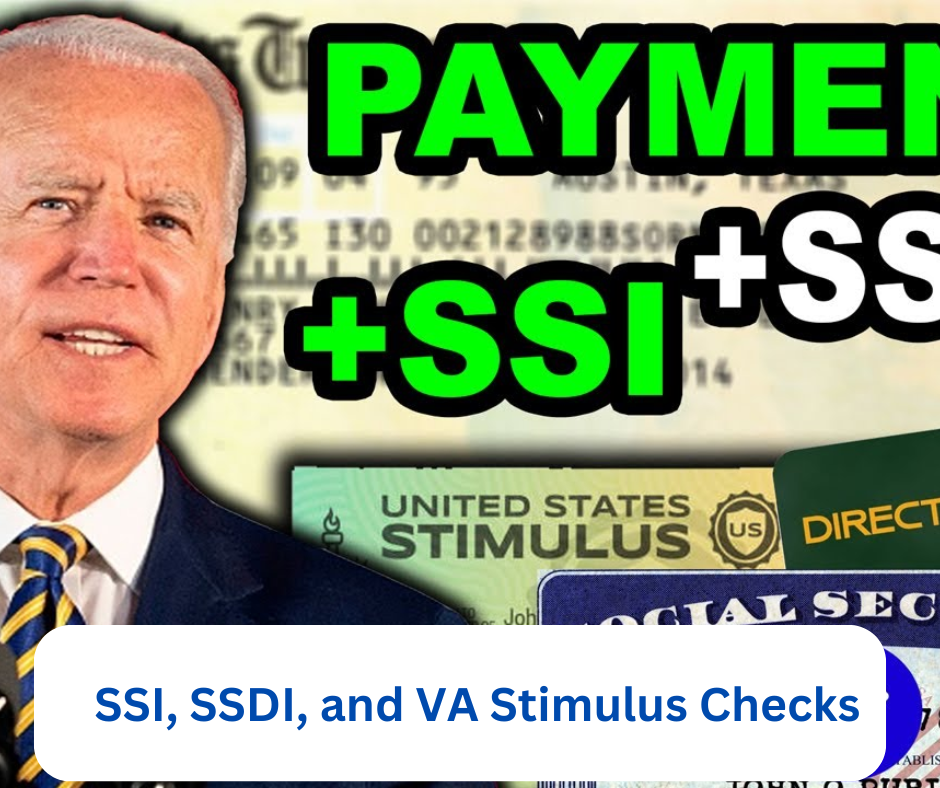In recent times, the Supplemental Security Income (SSI), Social Security Disability Insurance (SSDI), and Veterans Affairs (VA) benefits have been vital lifelines for millions of Americans. These programs offer financial support to those who need it most, including the elderly, disabled, and veterans. In the wake of economic challenges, such as the global pandemic, the U.S. government introduced stimulus checks to provide additional support to these groups. However, navigating the intricacies of these payments can be complex. In this article, we will dive deep into the nuances of SSI, SSDI, and VA stimulus checks to provide you with a thorough understanding.
What is Supplemental Security Income (SSI)?
Supplemental Security Income (SSI) is a federal program that provides monthly payments to individuals who have low income and few resources, and who are aged, blind, or disabled. The program is funded by general tax revenues, not Social Security taxes.
To qualify for SSI, one must meet certain criteria regarding income, resources, and disability status. Importantly, SSI recipients were eligible for all rounds of stimulus payments provided during the pandemic. These payments were intended to offer relief from the financial hardships exacerbated by the economic downturn.
How Does SSI Impact Stimulus Checks?
For SSI recipients, the stimulus checks were disbursed automatically. The payments did not count as income and did not affect SSI eligibility. This was a significant relief for many who rely on SSI, as they could receive their stimulus payment without the fear of losing their essential benefits. However, there were instances where SSI recipients experienced delays or complications in receiving their stimulus payments, often due to outdated information or administrative errors.
Social Security Disability Insurance (SSDI): A Crucial Lifeline
Social Security Disability Insurance (SSDI) is another critical program that offers financial assistance to individuals with disabilities who have previously worked and paid into the Social Security system. Unlike SSI, which is needs-based, SSDI is an entitlement program. Eligibility is determined by the number of work credits earned, which vary based on age and work history.
SSDI and Stimulus Payments
SSDI beneficiaries also received automatic stimulus payments. Like SSI, these payments were not considered income and did not affect eligibility for SSDI benefits. For most SSDI recipients, the payments were deposited directly into their bank accounts or sent via their regular method of receiving benefits.
However, some SSDI recipients faced challenges in receiving their payments promptly. Issues such as incorrect banking information or changes in living situations sometimes resulted in delays. It was crucial for recipients to ensure that their information was up to date with the Social Security Administration (SSA) to avoid any payment issues.
Understanding Veterans Affairs (VA) Benefits
Veterans Affairs (VA) provides a range of benefits to veterans, including disability compensation, pension programs, education benefits, and healthcare. The VA also played a role in distributing stimulus payments to veterans who receive VA benefits.
VA Beneficiaries and Stimulus Checks
Veterans receiving benefits from the VA were also eligible for stimulus checks. These payments were typically issued automatically, but there were some specific considerations for VA beneficiaries. For example, veterans who received benefits but did not file tax returns or who had dependents under the age of 17 had to take additional steps to claim their stimulus payments.
In many cases, VA beneficiaries who were also receiving SSI or SSDI saw their stimulus payments arrive through the same method as their regular benefits. The stimulus checks were not counted as income and did not impact eligibility for VA benefits, which was a critical consideration for many veterans who rely on these programs for their livelihood.
Common Issues and Solutions for Receiving Stimulus Checks
Despite the automatic distribution of stimulus checks to SSI, SSDI, and VA beneficiaries, several common issues arose during the disbursement process. These included:
- Delayed Payments: Some recipients experienced delays due to outdated information or administrative backlogs. Ensuring that your personal information, including banking details and address, is up to date with the SSA or VA is essential.
- Missing Payments for Dependents: SSI, SSDI, and VA beneficiaries with dependents under the age of 17 were required to provide additional information to receive the dependent portion of the stimulus payment. Failure to do so could result in missing out on these payments.
- Incorrect Payment Amounts: In some instances, recipients received incorrect payment amounts. This was often due to outdated information or errors in processing. If you believe you received the wrong amount, it is important to contact the IRS or the SSA to resolve the issue.
How to Ensure You Receive Future Stimulus Payments
Given the potential for future stimulus payments or other forms of financial relief, it is crucial to take proactive steps to ensure that you receive your payment without delay. Here are some tips:
- Keep Your Information Updated: Make sure that the SSA or VA has your most current information, including your address, bank account details, and dependent information.
- Monitor Communications: Stay informed by regularly checking for updates from the SSA, VA, or IRS regarding stimulus payments and other benefits.
- File Taxes If Necessary: Even if you are not required to file taxes due to low income, it may be beneficial to file a simple tax return to ensure that the IRS has your most current information on file.
Conclusion
Understanding the intricacies of SSI, SSDI, and VA stimulus checks is essential for ensuring that you receive the financial support you are entitled to. By staying informed and proactive, you can navigate the complexities of these programs and secure the benefits that are crucial to your financial well-being.
